December 31, 2010 by Greg Noe, Jonathan Ramundi, Nate, Steve
 Announcing the 2010 Game of the Year Awards from the First Hour! We published over 60 full reviews this year, tripling our output from last year. Of course, our writing staff has grown quite a bit also. I personally beat 30 games, undoubtedly making 2010 my most productive video gaming year ever. We also played over 55 first hours, keeping up a steady pace of one a week. We have not been lacking for great games or content this year.
Announcing the 2010 Game of the Year Awards from the First Hour! We published over 60 full reviews this year, tripling our output from last year. Of course, our writing staff has grown quite a bit also. I personally beat 30 games, undoubtedly making 2010 my most productive video gaming year ever. We also played over 55 first hours, keeping up a steady pace of one a week. We have not been lacking for great games or content this year.
This isn't your normal Game of the Year awards, we cover everything from older game of the year to worst first hour, so keep scrolling all the way to the bottom! If anything, our game of the year picks are the least interesting decisions. The writers here also don't vote on the categories, instead, everyone is welcome to submit their picks as their own definitive decision.
Read moreDecember 29, 2010 by Greg Noe
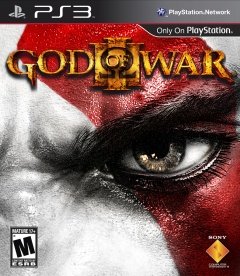 On the first of the year, the writers here presented their predictions for 2010 in the video game industry. It was our first attempt at anything like this, and since we're primarily gamers first, writers second, and industry experts in a distant last, this was definitely more of an exercise in fun forecasting than put-your-money-down-now predictions.
On the first of the year, the writers here presented their predictions for 2010 in the video game industry. It was our first attempt at anything like this, and since we're primarily gamers first, writers second, and industry experts in a distant last, this was definitely more of an exercise in fun forecasting than put-your-money-down-now predictions.
Well, we can't let bad predictions go forgotten and made fun of, so here we are again. We'll quickly cover what went randomly right and what went horribly wrong, but then we'll be back again on Friday for our fourth annual Game of the Year Awards.
Read moreDecember 27, 2010 by Greg Noe
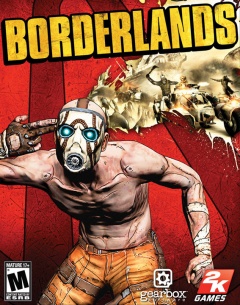 In my December blitz of full reviews, this is my last one of the year. I'm not going to say I saved the best for last, because that falls to either Super Mario Galaxy 2 or Mass Effect 2 at this point, but Borderlands is certainly way up there. Like Mirror's Edge, Borderlands paves its own genre and does it beautifully. The mash-up of first person shooter and RPG with a zillion guns tacked on for extra destruction gels perfectly. The classes feel distinctly different, four player online co-op just works super well, and the game features over 30 hours of content on just your first playthrough (and you will play more than once).
In my December blitz of full reviews, this is my last one of the year. I'm not going to say I saved the best for last, because that falls to either Super Mario Galaxy 2 or Mass Effect 2 at this point, but Borderlands is certainly way up there. Like Mirror's Edge, Borderlands paves its own genre and does it beautifully. The mash-up of first person shooter and RPG with a zillion guns tacked on for extra destruction gels perfectly. The classes feel distinctly different, four player online co-op just works super well, and the game features over 30 hours of content on just your first playthrough (and you will play more than once).
Borderlands was released in October of 2009, so it's been out a while and is very cheap if you want to get into it now. The team is currently developing Duke Nukem Forever so there's no fear of Borderlands 2 coming out for at least a year and a half, I would think. I plan to continue writing about Borderlands well into next year as I still have three sets of downloadable content to review after just covering the first one, The Zombie Island of Dr. Ned. But as the end of the year is imminent, I really feel like I need to get my thoughts on the main game out on the table.
Mike has gone into great detail already on what makes Borderlands so great, and after re-reading his review, I honestly don't have a lot to add. This is one of my favorite games of the year and I'll detail why I personally liked it so much below, but if you're looking for an in depth review I would recommend you check out Mike's.
Read moreDecember 24, 2010 by Nate
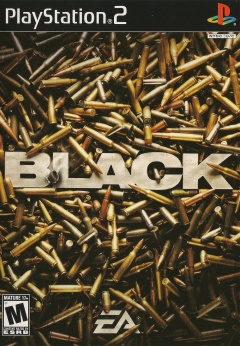 When I think back to the first time I saw Sonic the Hedgehog running on the Genesis (which I wasn't yet familiar with), I recall marveling at how much better it looked than the Mario games I had at home. I remember the time my brother tried to explain Super Mario 64 to me, and how little I understood what he was saying until I finally witnessed it in action. When I brought home a Gamecube the morning it launched, I was impressed with the speed and fluidity of the Death Star trench run that began Rogue Leader, at least when compared to its predecessor on the N64. But the first time I saw Call of Duty 2 at Toys R Us on an HDTV screen, the only thought that ran through my mind was...
When I think back to the first time I saw Sonic the Hedgehog running on the Genesis (which I wasn't yet familiar with), I recall marveling at how much better it looked than the Mario games I had at home. I remember the time my brother tried to explain Super Mario 64 to me, and how little I understood what he was saying until I finally witnessed it in action. When I brought home a Gamecube the morning it launched, I was impressed with the speed and fluidity of the Death Star trench run that began Rogue Leader, at least when compared to its predecessor on the N64. But the first time I saw Call of Duty 2 at Toys R Us on an HDTV screen, the only thought that ran through my mind was...
"Really? This is next-gen?"
Yes, the characters were constructed of more polygons. And the textures were clearer. And of course, the higher resolution made everything easier to see. But I just couldn't help but feel a little disappointed, seeing that the the game, and others in the 360 launch library, just didn't seem to bring any worthwhile improvements to the table. In fact, it wasn't until the first time I saw Lost Planet's smoking RPG trails, gorgeous boss monsters, and swarms of flying enemies that the feeling of a new generation really sank in.
On the other hand, many quality games are released at the end of a console's life cycle, once developers have a firmer grasp on the intricacies of the hardware. It is unfortunate that they're often overlooked for the next console's rushed launch titles, but that's reality. EA's Criterion studio, creators of the high-octane Burnout series, attempted to buck that trend with Black, a first-person shooter for the PS2 and Xbox that was marketed as a next-gen shooter for current-gen platforms.
The game certainly looked impressive the first time I saw a friend playing it, some five years ago. Does it still pack a punch, or will Black forever be lost between generations?
Read moreDecember 23, 2010 by Greg Noe
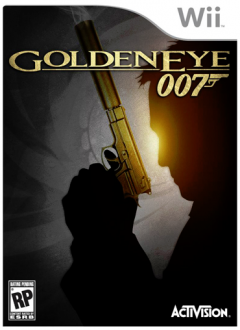 After more than three and a half years, we have finally reached one week's worth of playing the first hour of video games. 168 reviews, 168 hours, seven days, one week. That is a lot of gaming.
After more than three and a half years, we have finally reached one week's worth of playing the first hour of video games. 168 reviews, 168 hours, seven days, one week. That is a lot of gaming.
After every "day" we present a quick recap of the last 24 games. Nothing too special, but it's a convenient way to block off a set of reviews. Here are the last 24 reviews that represent the last 24 hours of gaming, presented in published order.
Read moreDecember 22, 2010 by Greg Noe
 Think about your favorite part of any platformer game, it probably has something to do with excellent level designed coupled with you being in the zone and cruising through the stage on a perfect run. Like in Super Mario Bros. 3 where you bounce from goomba to goomba and take off in flight as Raccoon Mario.
Think about your favorite part of any platformer game, it probably has something to do with excellent level designed coupled with you being in the zone and cruising through the stage on a perfect run. Like in Super Mario Bros. 3 where you bounce from goomba to goomba and take off in flight as Raccoon Mario.
Now think about the worst part in any platformer, for me, it's when a platformer stops being a platformer and tries its hand at something... less than adequate. This might mean boss fights that require more luck than skill or high action sequences that seem better at home in a much different genre.
Mirror's Edge is a prime example of a game where excellent platforming level design collides with obnoxiously out of place non-platforming. Thankfully, the highs outweigh the lows in this ambitious first person platformer. The game was released on the Xbox 360, PlayStation 3, and Windows in 2008 and was planned to be the first game in planned trilogy. Sales apparently weren't good enough for Electronic Arts and no word of a sequel has been announced. Though in classic industry PR, they "haven't not not" announced Mirror's Edge 2.
This is the First Hour's second opinion on Mirror's Edge along with my conclusion after playing its first hour earlier this month. Here's my full review of Mirror's Edge.
Read moreDecember 21, 2010 by Greg Noe
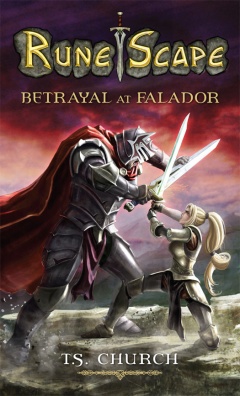 I’m one of those people who enjoys reading novels set in familiar video game worlds. Growing up, I read Castlevania books starring some flavor of Belmont, and even remember finishing a Bionic Commando novella at some point (which, undoubtedly, did not end in Hitler’s head exploding). More recently, I’ve been enjoying the Mass Effect fiction that does a tremendous job adding to the already rich universe found in the video games.
I’m one of those people who enjoys reading novels set in familiar video game worlds. Growing up, I read Castlevania books starring some flavor of Belmont, and even remember finishing a Bionic Commando novella at some point (which, undoubtedly, did not end in Hitler’s head exploding). More recently, I’ve been enjoying the Mass Effect fiction that does a tremendous job adding to the already rich universe found in the video games.
But when I was asked to read a RuneScape novel, I wondered if maybe I was crossing the line of reading video game books. I’ve never played RuneScape, I’ve never even thought about playing RuneScape, and before I did some research, I found that everything I thought I knew about RuneScape was wrong.
I tried to limit my research though to just the facts about the game itself, and not the game world. If RuneScape: Betrayal at Falador was meant to be read by both fans of the game and readers who might not be familiar with the series, then it should serve as both fan-service and as a great introduction to the RuneScape universe. But really, there have been over 130 MILLION registered RuneScape players, there’s apparently no lack of market.
December 20, 2010 by Greg Noe
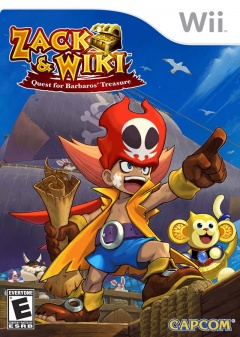 I don't think I've been this disappointed in a video game since Assassin's Creed. Zack and Wiki started off great, but then some realizations start to sink in, and then everything falls off the track. To say I didn't have fun with Zack and Wiki would be a lie, but there are some major problemms with this game.
I don't think I've been this disappointed in a video game since Assassin's Creed. Zack and Wiki started off great, but then some realizations start to sink in, and then everything falls off the track. To say I didn't have fun with Zack and Wiki would be a lie, but there are some major problemms with this game.
Before we get into the review proper, Zack and Wiki: Quest for Barbaros' Treasure was released in 2007 by Capcom. I admitted in my first hour review of the game that this was the first non-Nintendo published title I was actually interested in playing. Super Mario Galaxy 1 and 2 are incredible, but I was having a lot of trouble finding something that interested me on the Wii beyond those. Zack and Wiki had been nagging at me for a while and received great reviews, seemed like it was the right way to go.
I understand that my opinion probably differs quite a bit from the normal reviewer, it makes me question whether they actually played the entire game or if expectations of Wii gameplay has really changed this much over three years? But if I wasn't honest in my review, what's the point in writing?
Read moreDecember 17, 2010 by Nate
 It's never been tougher to pin down just how much a game is worth. Vanquish will last you all of five hours for its $60 entry fee, but is it so much fun that you'll want to play it again and again? Conversely, Fallout New Vegas offers days' worth of content to explore, but is a buggy expansion pack really worth sixty Junior Bacon Cheeseburgers? And why shell out full price for this year's sports title when last year's model is nearly identical and can be bought for a song?
It's never been tougher to pin down just how much a game is worth. Vanquish will last you all of five hours for its $60 entry fee, but is it so much fun that you'll want to play it again and again? Conversely, Fallout New Vegas offers days' worth of content to explore, but is a buggy expansion pack really worth sixty Junior Bacon Cheeseburgers? And why shell out full price for this year's sports title when last year's model is nearly identical and can be bought for a song?December 16, 2010 by Greg Noe
 I've been on a puzzle kick lately. I attribute that to playing the 60 hour epic Infinite Space and having to take just as many hours coming down from that high. What I love about the Nintendo DS is its instant on/off and games like Harvest Moon: Frantic Farming or Picross 3D are perfect for jumping in and out quickly. Next up on my list of puzzlers to try was Mario vs. Donkey Kong: Mini-Land Mayhem!, the fourth game in the Mario vs. Donkey Kong series that began on the Game Boy Advance.
I've been on a puzzle kick lately. I attribute that to playing the 60 hour epic Infinite Space and having to take just as many hours coming down from that high. What I love about the Nintendo DS is its instant on/off and games like Harvest Moon: Frantic Farming or Picross 3D are perfect for jumping in and out quickly. Next up on my list of puzzlers to try was Mario vs. Donkey Kong: Mini-Land Mayhem!, the fourth game in the Mario vs. Donkey Kong series that began on the Game Boy Advance.
I actually thought that this was the second Mario vs. Donkey Kong game, believing that the DSiWare game, Minis March Again, was the first. Surprise surprise, there were two previous: Mario vs. Donkey Kong on the GBA and March of the Minis on the DS. I think I missed out on all these due to me not reading Nintendo Power for a few years, how else do you hear about these curious yet under-the-radar kind of games?
Mini-Land Mayhem pits, just like the name says, Mario against Donkey Kong in an epic struggle to rescue Pauline, Mario's original crush. Mario doesn't feel like getting his hands dirty though (being a plumber and all), so he sends a bunch of robot mini Marios to do his bidding. But they're dumb, like Lemmings, and simply walk in a straight line until they hit something and then turn around. They'll climb the first ladder they run into or trod up stairs, but that's about it.
Can Nintendo really publish four titles with this basic premise in the span of just six years? (haha, of course they can, they're Nintendo) Here's my full review of my first experience with the Mario vs. Donkey Kong series in Mini-Land Mayhem.
Read more